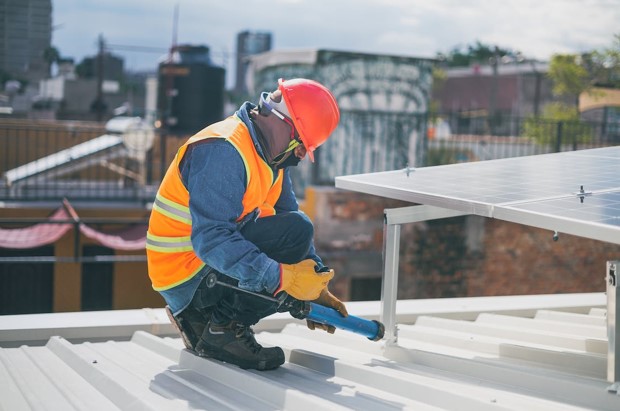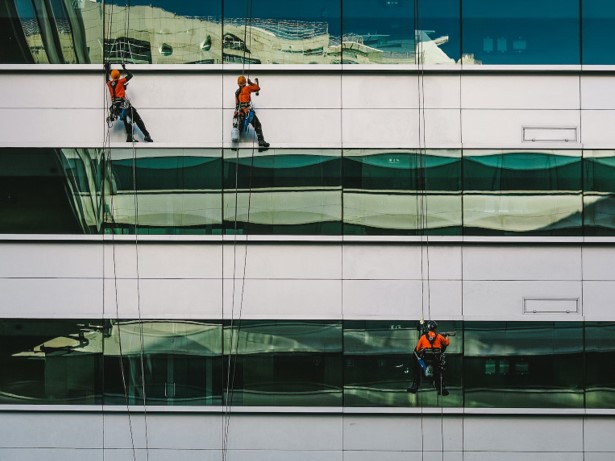Commercial properties require regular maintenance to ensure they remain in good condition and provide tenants and visitors with a safe and inviting environment. This blog post will discuss some top tips for effectively maintaining commercial properties.
Conduct Regular Inspections
Regular inspections are a fundamental aspect of effective property maintenance. These inspections allow property owners or managers to identify issues before they escalate into major problems. Inspections should cover both the interior and exterior of the property and its systems, such as HVAC, plumbing, and electrical.
It is important to establish a regular inspection schedule, depending on the property type and its specific needs. For example, high-traffic areas may require more frequent inspections than low-traffic ones. By conducting inspections on a regular basis, property owners can catch and address maintenance issues early on, saving time and money in the long run.
Develop a Maintenance Plan
Developing a comprehensive maintenance plan is crucial for effective property management. This plan should outline the tasks that need to be performed regularly and establish priorities based on urgency and importance. It should also include a budget to allocate resources appropriately.
Creating a maintenance schedule helps ensure that tasks are consistently performed, and nothing is overlooked. The team at Nations Roof recommends a regular roof inspection to be included in a comprehensive maintenance plan to extend the lifespan of roofing systems and prevent costly repairs. Additionally, professional roofing contractors can handle the maintenance schedule or provide a maintenance calendar to property managers. By identifying priority tasks, property managers can focus on addressing critical issues first and prevent them from escalating into larger and more costly problems.
Addressing Routine Maintenance Tasks
Routine maintenance tasks are essential for keeping commercial properties in optimal condition. Some common tasks include regular cleaning and upkeep of common areas, such as lobbies, hallways, and restrooms. This helps create a positive first impression for tenants and visitors.
In addition, maintaining the property's landscaping and grounds is important for its overall appearance. Regularly mowing lawns, trimming trees and shrubs, and removing debris enhances the property's curb appeal and contributes to a pleasant and inviting atmosphere.
Ensuring that HVAC systems are checked and serviced regularly is another crucial aspect of commercial property maintenance. Proper maintenance of these systems improves energy efficiency, reduces utility costs, and ensures a comfortable indoor environment for occupants.
Plumbing maintenance and repairs should not be overlooked either. Regular inspections can help identify leaks, clogs, or other plumbing issues, which, if left unaddressed, can lead to costly water damage or disruption of business operations.
Keeping your outdoor area healthy is an important aspect of maintaining the overall functionality and appeal of your property. Property owners can hire sprinkler installation services to ensure their lawns and landscaping receive consistent and efficient watering without the hassle of manual irrigation. A well-designed sprinkler system not only conserves water but also helps prevent overwatering or dry patches that can damage plants. Regular maintenance of both indoor plumbing and outdoor irrigation can save time and money while keeping your property in top shape.
Electrical system inspections are also important to prevent hazards such as faulty wiring or overloaded circuits. Regularly checking electrical systems can help identify any issues and ensure the safety of occupants.
Implementing pest control measures is yet another critical aspect of maintaining commercial properties. Regular inspections and prompt action to address pest infestations help protect the property and its occupants from health risks and damage.
Handling Repairs and Renovations
Promptly addressing maintenance issues and conducting necessary repairs are essential for maintaining commercial properties. Property owners or managers should have a reliable network of contractors or service providers to handle repairs efficiently.
When it comes to repairs, it is important to prioritize immediate attention to issues that pose safety risks or impact the property's functionality. A proactive approach to repairs helps prevent problems from escalating and causing further damage.
Periodic renovations may also be necessary to update the property or accommodate changing tenant needs. This could involve updating interiors, replacing fixtures, or making structural improvements. Budgeting for repairs and renovations is crucial to ensure that funds are available when needed.
Ensuring Safety and Security
Maintaining safety and security measures is a top priority for commercial property owners. Installing and maintaining security systems, such as surveillance cameras, alarms, and access control systems, helps deter potential burglaries or unauthorized access.
Regularly inspecting fire safety equipment, such as fire extinguishers, smoke detectors, and sprinkler systems, is essential to ensure proper functioning in an emergency. Property owners should also implement safety protocols and procedures to protect employees and visitors.
Maintaining Tenant Satisfaction
Keeping tenants satisfied is crucial for the long-term success of commercial properties. Effective communication with tenants helps address their concerns promptly and fosters a positive landlord-tenant relationship. Regularly seeking feedback from tenants can provide valuable insights into areas that need improvement.
Providing amenities and services that enhance the tenant experience can also contribute to tenant satisfaction. This could include amenities like fitness centers, communal areas, or concierge services that add value to the property and make it more attractive to potential tenants.
Using Technology for Maintenance Management
Technology plays a significant role in streamlining maintenance management in today's digital age. Digital tools, such as property management software and maintenance management apps, can help simplify the process of tracking and scheduling maintenance tasks. These tools allow property owners or managers to create work orders, assign tasks to team members or contractors, and track the progress of repairs or maintenance projects.
Additionally, technology can be leveraged to automate routine maintenance tasks. For example, sensors and smart building systems can monitor energy usage, HVAC performance, and other critical systems, alerting property managers to potential issues or inefficiencies.
Using technology for maintenance management improves efficiency and provides valuable data and insights into the property's condition and performance. This data can help property owners make informed decisions about maintenance priorities and resource allocation.

Maintaining commercial properties is a multifaceted task that requires careful planning, regular inspections, and proactive repairs. By following these top tips, property owners or managers can ensure that their commercial properties remain in good condition, provide a safe and inviting environment, and meet the needs of tenants and visitors.
Remember, property maintenance is an ongoing process, and staying proactive is key to preventing major issues and minimizing downtime. By investing time and resources into regular maintenance, commercial property owners can protect their investment and create a positive experience for everyone who interacts with the property.










